LIfe Haqq Podcast, Episode 23 – Racism and Islamophobia: A Lived Reality in Canada
Rarely do we as Canadian Muslims hear our brothers and sisters voicing their experiences with racism and discrimination—this is what makes episode 23 of the Life Haqq Podcast one of the most memorable to date. The episode includes personal stories of brothers and sisters encountering Islamophobia and racism in different walks of life, coupled with extensive reflections and Naseeha from Dr. Syed on these issues. Following the Life Haqq podcast and contemplating the Islamophobic encounters I have dealt with in the past, I have come to the realization that Imaan (faith) is key to overturning oppression.
Allah SWT says:
O believers! Stand firm for justice as witnesses for Allah even if it is against yourselves, your parents, or close relatives. Be they rich or poor, Allah is best to ensure their interests. (Surah Nisa, Ayah 135)
The verse talks about standing up for justice even when it goes against our personal inclinations. Dr. Syed heavily spoke on this in the podcast, talking about how we continue to categorize ourselves into individual clusters of identities and unless oppression directly affects our identity, we are hesitant to stand up for justice.
Furthermore, a deliberate effort has gone into slicing people into identity groups, hence giving people the power to pick and choose to stand up to racism in issues where it is convenient. Ultimately, leading to a system that greatly hinders our ability to fundamentally deal with injustice, oppression, intolerance, and racism.
As a Muslim woman who has had personal experience with Islamophobia, it hurt to see that while I was being harassed, bystanders did nothing. Now I understand why the verse above is essential in dealing with the issue of racism. It is easy to stand up to racism when there are protests, as thousands of people are by your side, supporting you. In some ways, it signifies conformity, an illusion that we’ve done all that we can.
However, standing up to racism/discrimination all alone in an incident, is hard, because it does not personally affect the bystander at all. The Life Haqq Podcast made me realize that as Muslims, we can’t just act as bystanders, rather we have a responsibility in Islam to stand up for justice—defend the oppressed when we witness injustice taking place, even if it doesn’t personally affect us. Listening to the podcast, I wondered what the Quran says about a society in which we did not take on this responsibility to stand up to injustice even if it goes against ourselves?
Allah SWT answers this question in the Quran:
So do not let your desires cause you to deviate ˹from justice˺. If you distort the testimony or refuse to give it, then ˹know that˺ Allah is certainly All-Aware of what you do. (Surah Nisa, Ayah 135)
This verse very much echoes the problem we are facing in the world today. For so long, we as a collective have closed ourselves off into our little clusters; standing up for justice when it personally affects us, to a point of chaos and corruption. An important point brought up by Dr. Syed from CMCO, which I found quite profound, was the harms of taking upon a victim-type mindset. As someone who has experienced Islamophobia first hand, it is easy to treat oneself as a victim.
However, after listening to the podcast, I learned a lot about the Islamic point of view on justice and it has made me reflect on how much I have done as a Muslim to practice what Allah SWT has prescribed as the solution to oppression. I had to stop and ask myself when was the last time I stood up to racism when it was an inconvenience to me?
I now realize that for a Muslim, standing up for justice is not just a trend, a symbol of conformity, but rather a practice prescribed by our Rabb and deeply rooted within the dawn of our Deen.
Overall, I found Episode 23 of the Life Haqq Podcast to be immensely impactful, as it opened a window into the Islamic understanding of justice and presented the prescription to ending oppression.
Article written by Faiza Quyoom
